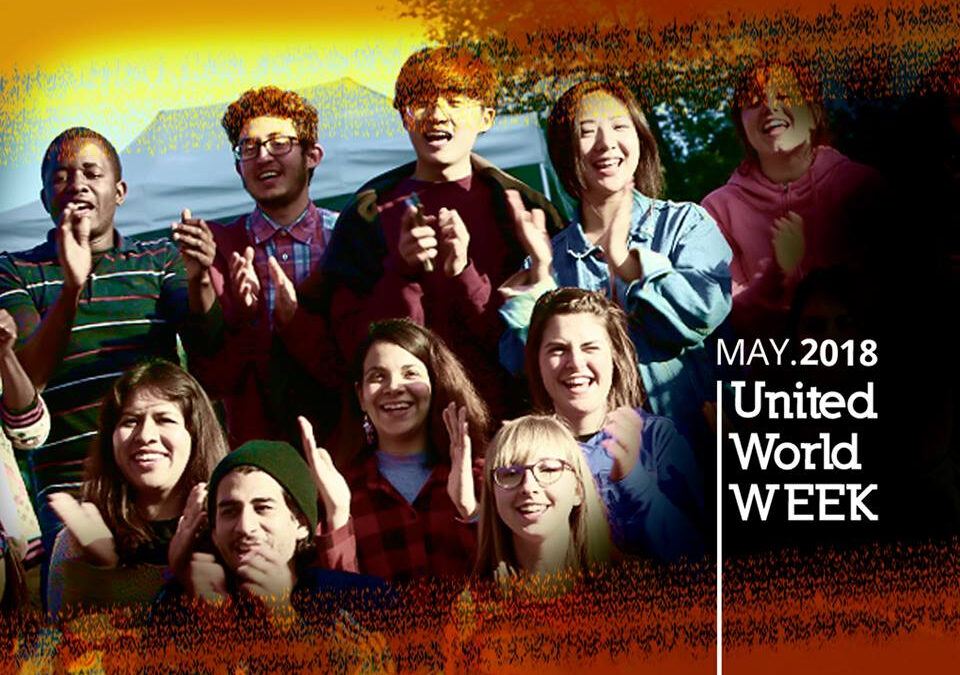
Apr 28, 2018 | Focolare Worldwide
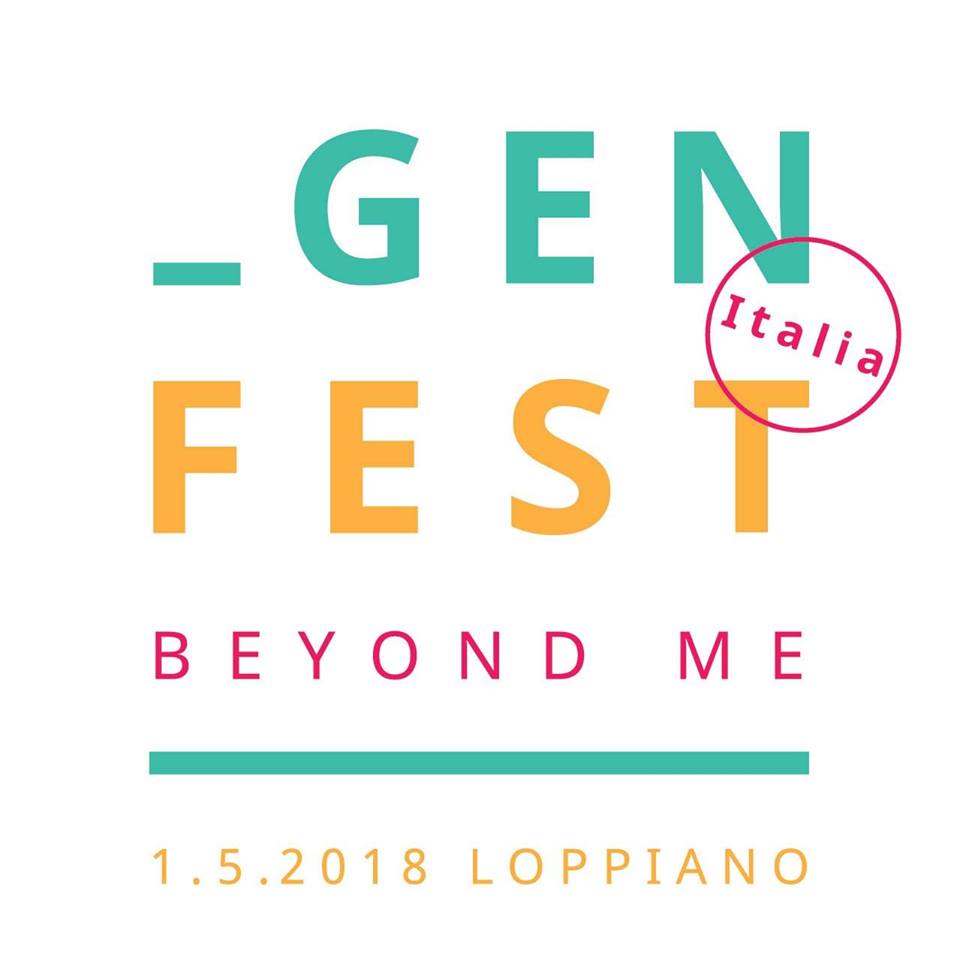 Zooming in on the young. Once again this year United World Week will be launched from the Focolare’s little town of Loppiano, Italy. Events will include a global network of projects marked by the spirit of brotherhood among peoples from a variety of cultures. This event has been held for over twenty years by the young members of the Focolare Movement who wish to bear witness not only to their peers, but also to public institutions that the dream of a united world has not been crushed by war or underneath the weight of social injustice – especially if the new generations who have been formed in a culture of peace are the ones taking the reins of society in their own hands. On May 1st, the Italian Focolare town will host one of the many “national” events in advance of the Genfest that will be held this year in Manila, Philippines (“Beyond all Borders, July 2018), and assemble 3 thousand young people from all over the world. It will be a festival to talk about the most difficult border to overcome when reaching out to others: oneself. “Beyond Me” will tell the stories of people who have wanted to bring about a change, beginning with themselves, stepping out of their comfort zones, to open themselves to such values as solidarity and to the needs of the people around them. For many of the young people, this experience of openness deepens its roots into a personal encounter with God, which has transformed their lives and allowed them to overcome their fears. For others, it has been overcoming an illness or disability or taking notice of someone else’s need. In name of a great friendship with the community of Nomadelfia and in view of the Pope’s visit to the two towns on May 10th, there will also be a large group of young people from Nomadelfia.
Zooming in on the young. Once again this year United World Week will be launched from the Focolare’s little town of Loppiano, Italy. Events will include a global network of projects marked by the spirit of brotherhood among peoples from a variety of cultures. This event has been held for over twenty years by the young members of the Focolare Movement who wish to bear witness not only to their peers, but also to public institutions that the dream of a united world has not been crushed by war or underneath the weight of social injustice – especially if the new generations who have been formed in a culture of peace are the ones taking the reins of society in their own hands. On May 1st, the Italian Focolare town will host one of the many “national” events in advance of the Genfest that will be held this year in Manila, Philippines (“Beyond all Borders, July 2018), and assemble 3 thousand young people from all over the world. It will be a festival to talk about the most difficult border to overcome when reaching out to others: oneself. “Beyond Me” will tell the stories of people who have wanted to bring about a change, beginning with themselves, stepping out of their comfort zones, to open themselves to such values as solidarity and to the needs of the people around them. For many of the young people, this experience of openness deepens its roots into a personal encounter with God, which has transformed their lives and allowed them to overcome their fears. For others, it has been overcoming an illness or disability or taking notice of someone else’s need. In name of a great friendship with the community of Nomadelfia and in view of the Pope’s visit to the two towns on May 10th, there will also be a large group of young people from Nomadelfia. 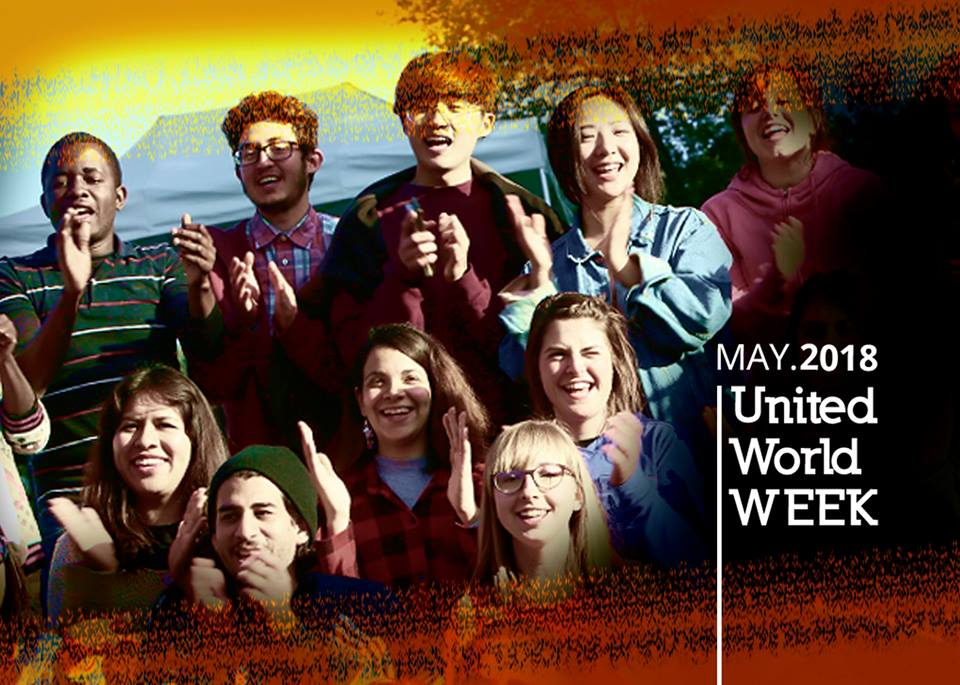 United World Week, which will begin right after, will be a single event located in different places around the world. It is an international expo that is an integral part of the United World Project, which for more than twenty years – the first edition in 1995 – returns every year at this time to promote peaceful relations and exchange among peoples and cultures, especially among the poor, marginalized and lonely, but not with out the help of famous people from the worlds of culture, sport, civil society and religion. Over time, United World Week gained ground on the local, national and supranational levels of public opinion through the social and mass media, and its projects in favor of brotherhood. The 2018 edition will focus on the topic “Generation Zero Hunger” one of 17 sustainable development objectives contained in the Agenda approved by the member States of the United Nations, to be reached by 2030. The teenagers and young people of the Focolare Movement have long been engaged in offering an important contribution to the project being brought forward by the Food and Agriculture Organization of the United Nations (FAO), with regard to things such as malnutrition, wasting food, respect for Nature and personal and collective projects geared towards the responsible use of the earth and its resources. Hence, the Week will be an opportunity to show the results of this collaboration and to engage other teenagers, citizens and institutions in reaching the goal. At the conclusion, on May 6th, the Run for Unity relay race will be held with hundred and thousands of teenagers of all nationalities, religions, cultures and ethnic groups. It will cover the earth, offering a testimony of “fraternity” from East to West. At every stop along the run – on foot or on bike – the most counter-current relay that exists will be enriched with sporting events, games, acts of solidarity and whatever else can help to bear witness that the dream of a united world lives on, in spite of the tensions or signs to the contrary. Perhaps these kids will be among the main actors. Chiara Favotti
United World Week, which will begin right after, will be a single event located in different places around the world. It is an international expo that is an integral part of the United World Project, which for more than twenty years – the first edition in 1995 – returns every year at this time to promote peaceful relations and exchange among peoples and cultures, especially among the poor, marginalized and lonely, but not with out the help of famous people from the worlds of culture, sport, civil society and religion. Over time, United World Week gained ground on the local, national and supranational levels of public opinion through the social and mass media, and its projects in favor of brotherhood. The 2018 edition will focus on the topic “Generation Zero Hunger” one of 17 sustainable development objectives contained in the Agenda approved by the member States of the United Nations, to be reached by 2030. The teenagers and young people of the Focolare Movement have long been engaged in offering an important contribution to the project being brought forward by the Food and Agriculture Organization of the United Nations (FAO), with regard to things such as malnutrition, wasting food, respect for Nature and personal and collective projects geared towards the responsible use of the earth and its resources. Hence, the Week will be an opportunity to show the results of this collaboration and to engage other teenagers, citizens and institutions in reaching the goal. At the conclusion, on May 6th, the Run for Unity relay race will be held with hundred and thousands of teenagers of all nationalities, religions, cultures and ethnic groups. It will cover the earth, offering a testimony of “fraternity” from East to West. At every stop along the run – on foot or on bike – the most counter-current relay that exists will be enriched with sporting events, games, acts of solidarity and whatever else can help to bear witness that the dream of a united world lives on, in spite of the tensions or signs to the contrary. Perhaps these kids will be among the main actors. Chiara Favotti
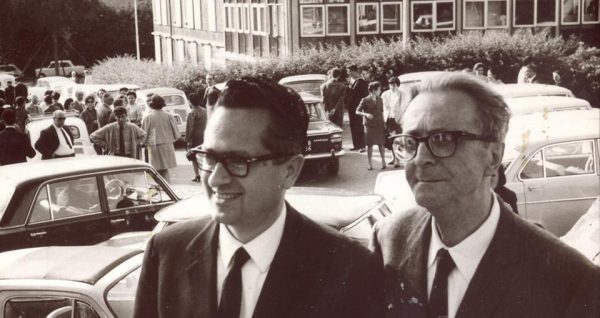
Apr 27, 2018 | Non categorizzato

Tommaso Sorgi with Igino Giordani
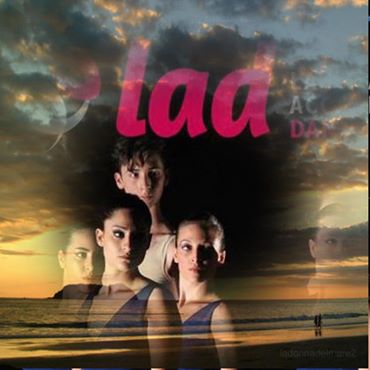
Apr 26, 2018 | Non categorizzato
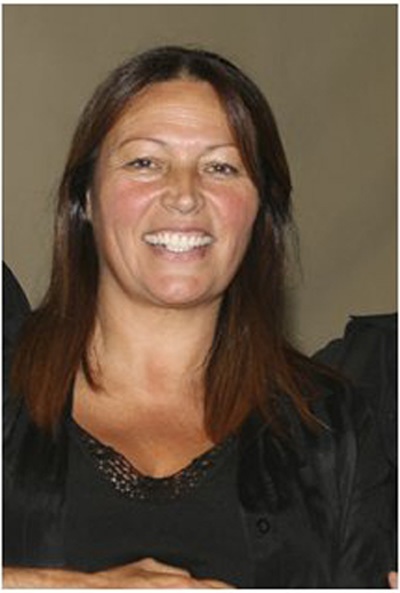
Antonella Lombardo
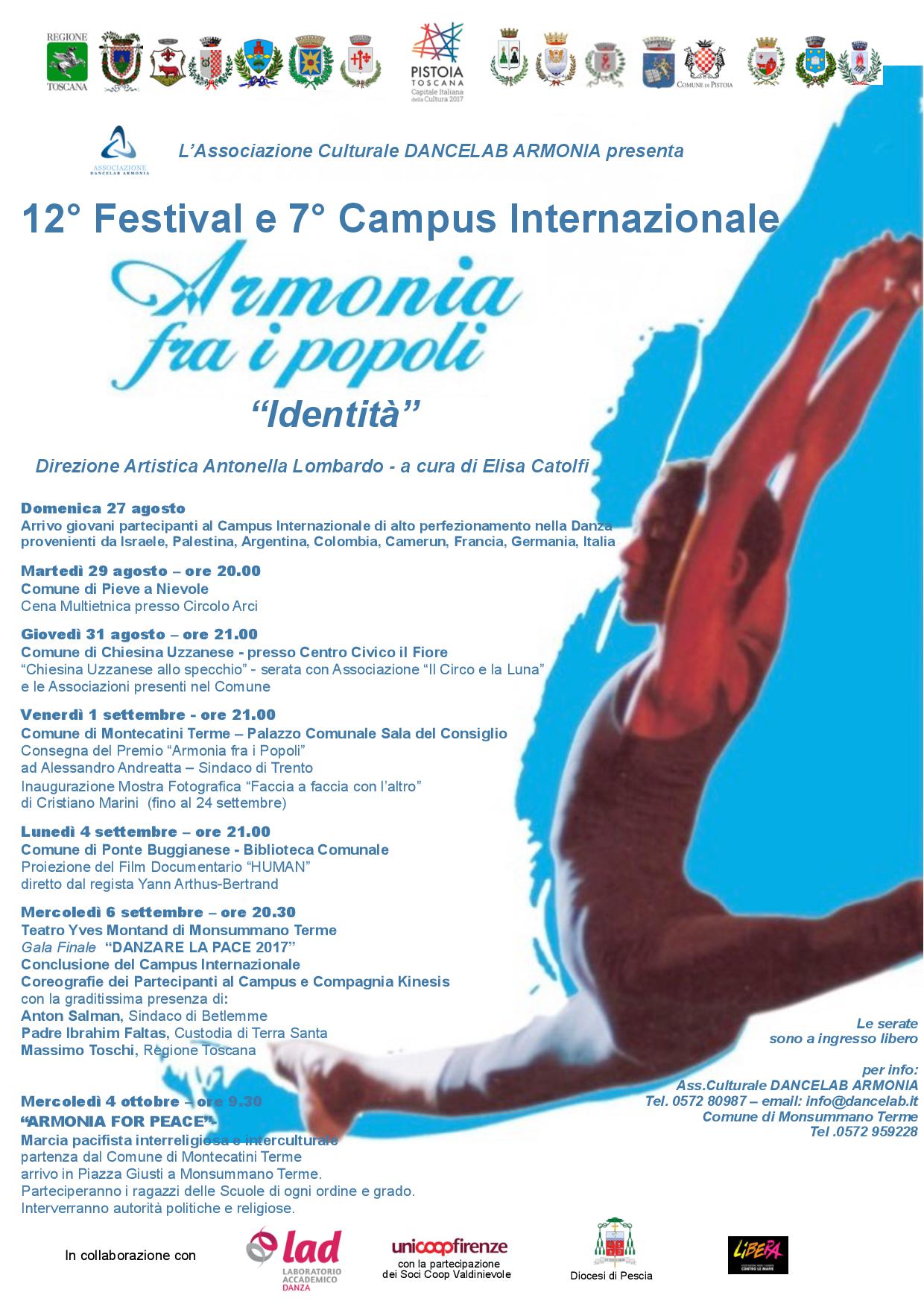 That was the beginning of the Harmony DanceLab Association. The aim of this association is to develop dance as a means of creating harmony and dialogue among different cultures and so contribute to peace in the world. For the last thirteen years it has organised “Harmony among People” an international festival, involving not only a dance school of students from areas of conflict in Palestine and Israel but also many people from the local community. Peace education underpins the professional and human formation that the students receive. Over the years, the Association has spread to various parts of Italy and Budapest and, since 2014, has worked in the Middle East with the John Paul II Foundation and in collaboration with the “Children Without Borders” Institute and Custodians of the Holy Land. Antonella continues, “Peace is not just a goal to reach but an everyday process that requires great effort and commitment. It is an educational challenge. Students learn dance techniques but also experience the power of a language that is superior to Art. On the last evening, they tell everyone about the respect, understanding and fraternity they have experienced.” An intercultural and inter religious Peace March is also part of the project. This takes place every year on the 4th October and draws people from institutions, schools, voluntary groups and faith communities (Christian, Muslim and Jewish) in Tuscany.
That was the beginning of the Harmony DanceLab Association. The aim of this association is to develop dance as a means of creating harmony and dialogue among different cultures and so contribute to peace in the world. For the last thirteen years it has organised “Harmony among People” an international festival, involving not only a dance school of students from areas of conflict in Palestine and Israel but also many people from the local community. Peace education underpins the professional and human formation that the students receive. Over the years, the Association has spread to various parts of Italy and Budapest and, since 2014, has worked in the Middle East with the John Paul II Foundation and in collaboration with the “Children Without Borders” Institute and Custodians of the Holy Land. Antonella continues, “Peace is not just a goal to reach but an everyday process that requires great effort and commitment. It is an educational challenge. Students learn dance techniques but also experience the power of a language that is superior to Art. On the last evening, they tell everyone about the respect, understanding and fraternity they have experienced.” An intercultural and inter religious Peace March is also part of the project. This takes place every year on the 4th October and draws people from institutions, schools, voluntary groups and faith communities (Christian, Muslim and Jewish) in Tuscany.  How many young people have you met in your career as a teacher of dance? “Thousands. Dance is difficult and demanding but young people are drawn to it. TV talent shows also attract people but give a distorted idea about what is truly art. You have to provide an experiential dimension to make an impact as a teacher. Nowadays, young people do not accept the theory without experiencing the importance of it for themselves.” Does art have a social value? Antonella Lombardo is certain that it does. “Art is like the prophecy of a new type of Humanism – a means of achieving social harmony. It is a reflection of Beauty that is Love. In conclusion, she says, “Keeping this in mind as I carry out my profession has changed my life totally. I have found meaning in what previously seemed to have no sense. I try to give young people the opportunity to do the same so that their lives might be a work of art, just as Chiara Lubich taught me.” Chiara Favotti See also: www.festivalarmonia.org, www.dancelab.it
How many young people have you met in your career as a teacher of dance? “Thousands. Dance is difficult and demanding but young people are drawn to it. TV talent shows also attract people but give a distorted idea about what is truly art. You have to provide an experiential dimension to make an impact as a teacher. Nowadays, young people do not accept the theory without experiencing the importance of it for themselves.” Does art have a social value? Antonella Lombardo is certain that it does. “Art is like the prophecy of a new type of Humanism – a means of achieving social harmony. It is a reflection of Beauty that is Love. In conclusion, she says, “Keeping this in mind as I carry out my profession has changed my life totally. I have found meaning in what previously seemed to have no sense. I try to give young people the opportunity to do the same so that their lives might be a work of art, just as Chiara Lubich taught me.” Chiara Favotti See also: www.festivalarmonia.org, www.dancelab.it
Apr 26, 2018 | Non categorizzato, Word of
for ages 4-8 | for ages 9-17 | Print | Audio
St. Paul was writing to Christians in the region of Galatia, who had heard the Gospel proclamation from him. He was scolding them for not understanding the true meaning of Christian freedom. For the people of Israel, freedom was a gift from God who had brought them out of slavery in Egypt and led them to a new land, establishing a pact of mutual faithfulness with them. At the same time, Paul strongly affirmed that Christian freedom is a gift from Jesus. In fact, Jesus makes it possible for us, in him and like him, to become children of God who is love. By imitating the Father as Jesus taught us and showed us through his life, we too can learn to have the same attitude of mercy towards everyone, and be at their service. (Mt 5:43-48; Lk 6:36; Mk 10:45). For Paul, the apparent contradiction in “freedom to serve” is possible through the gift of the Spirit that Jesus gave to humanity by his death on the cross. It is the Spirit who gives us the strength to come out of our prison of selfishness, which is burdened with divisions, injustices, betrayals, and violence. He leads us to true freedom. “By contrast, the fruit of the Spirit is love, joy, peace, patience, kindness, generosity, faithfulness, gentleness, and self-control.“ Besides being a gift, Christian freedom is also a commitment. Above all, it is a commitment to welcome the Spirit into our hearts, making room for him and recognizing his voice in us. “Above all, we must become more and more aware of the presence of the Holy Spirit in us,” Chiara Lubich wrote in the October issue of Città Nuova in 2000. “We have a great treasure in our innermost being, but are not sufficiently aware of it … To hear the voice of the Spirit and follow it, we must say no … to temptation, reject its suggestions and say yes to the tasks God has entrusted to us; yes to love for our neighbors; yes to the trials and difficulties we encounter… By doing so, the Holy Spirit will guide us and give our Christian life gusto, vigor, drive and brightness, without which it cannot be authentic. Then, whoever is with us will notice that we are not only children of our natural family, but also children of God.” In fact, the Spirit calls us to step aside from being the center of our concerns in order to be more receptive to others, to listen to them and share material and spiritual goods. He calls us to forgive or take care of the most varied people in different situations of daily life. This attitude allows us to experience the typical fruit of the spirit: our personal growth toward true freedom. This brings out and develops talents and resources in us that would have stayed buried and unknown had we continued living wrapped up in ourselves. Every action of ours is an opportunity not to be missed, to say no to the slavery of selfishness and yes to the freedom of loving. “By contrast, the fruit of the Spirit is love, joy, peace, patience, kindness, generosity, faithfulness, gentleness, and self-control.“ Those who accept the work of the Spirit in their hearts also contribute toward building positive human relations through their daily activities, at home and in society. Carlo Colombino, an entrepreneur, husband and father, owns a company in northern Italy. Out of his 60 employees, around a quarter are not Italian and some of them have had traumatic past experiences. “Even the workplace can and should facilitate their integration,” he told a journalist. “Our work includes quarrying and recycling construction materials, and I have responsibilities toward the environment and the area where I live. Some years ago, the economic crisis hit us hard: should I save the business or the employees? We made some people redundant, talking it over with them and finding the least painful solutions. It was a dramatic experience with sleepless nights. “I can do my job either well or poorly. I try to do it as best I can. I believe in the positive influence of ideas. A business focused only on turnover and figures will not last long. People must be at the center of all we do. I believe in God and am convinced that harmonizing business and solidarity is not a dream.” Let’s courageously set in motion our personal call to freedom, in the environment where we live and work. This will allow the Spirit to touch and renew the lives of many people around us, and move history toward a future of “joy, peace, patience, kindness.” Letizia Magri 3 Cfr. C. Lubich, We have a Treasure, New City, 44 (2000), 10, p. 7.
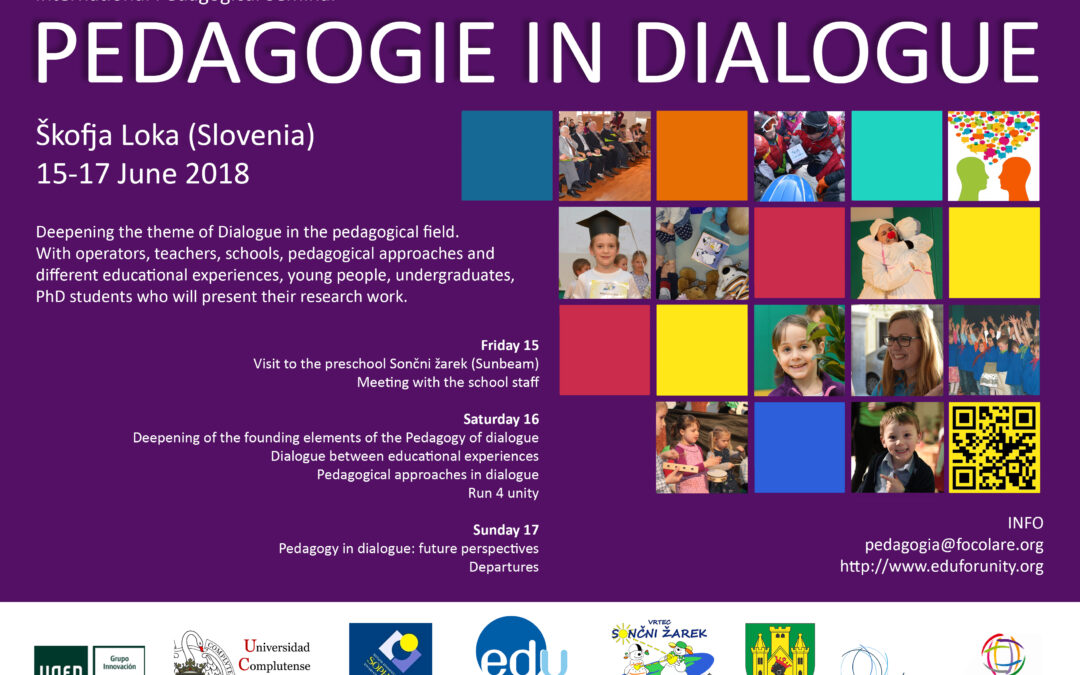
Apr 26, 2018 | Non categorizzato
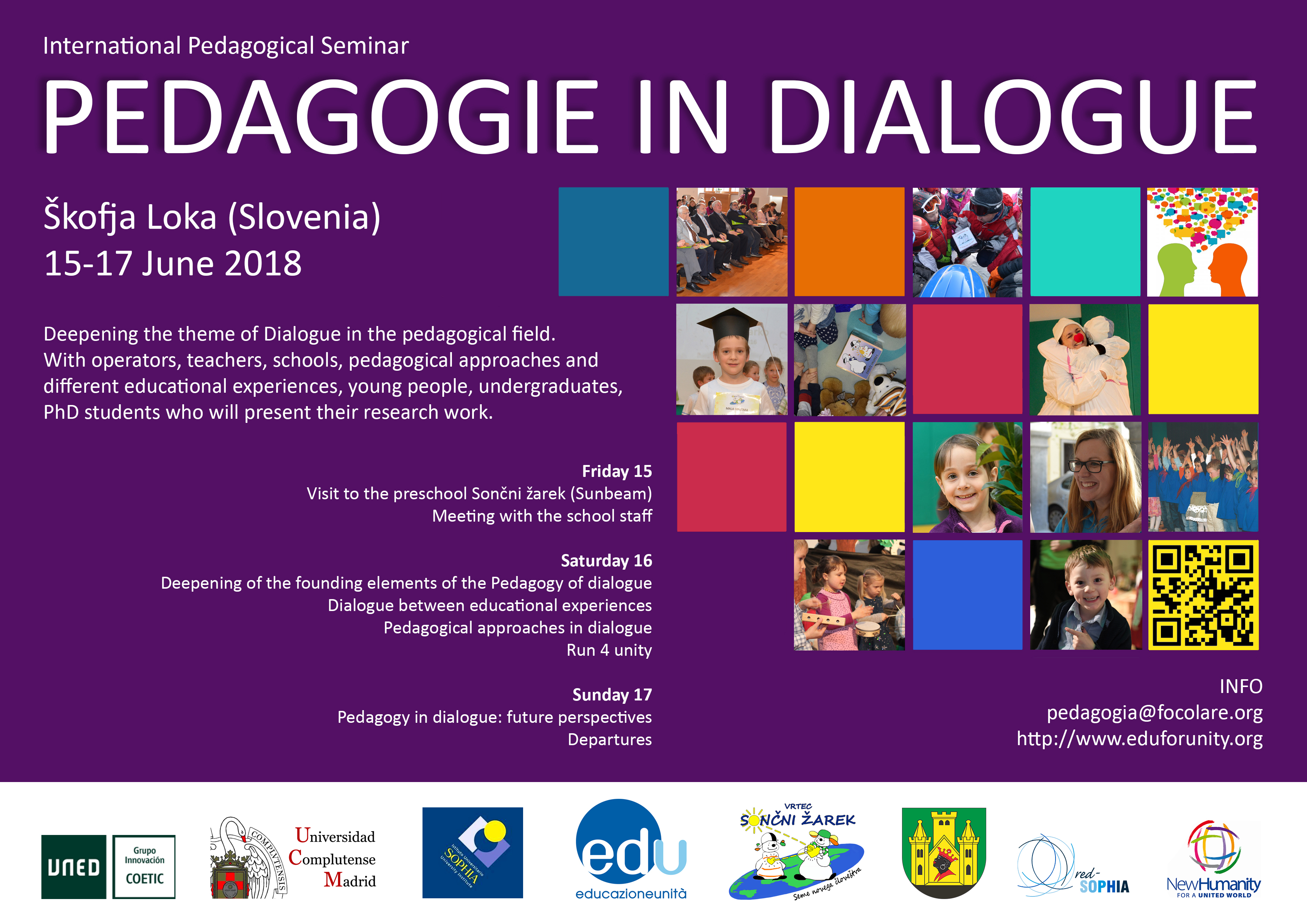 Deepening the theme of Dialogue in the pedagogical field. With operators, teachers, schools, pedagogical approaches and different educational experiences, young people, undergraduates, PhD students who will present their research work. Info: pedagogia@focolare.org Education for Unity
Deepening the theme of Dialogue in the pedagogical field. With operators, teachers, schools, pedagogical approaches and different educational experiences, young people, undergraduates, PhD students who will present their research work. Info: pedagogia@focolare.org Education for Unity
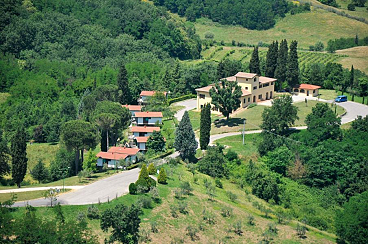
Apr 25, 2018 | Focolare Worldwide
I was born in Trentino, a region of northern Italy, 67 years ago. During my adolescence, my only interests were music and art. Because of the constant arguments with my parents, I soon left school and home. A guitar, long hair, my band: this became my world. With some friends we formed a commune where we lived, playing and dreaming together. It was a place of passage, where hashish circulated. I met Anna there when I was twenty years old, and in the joy and recklessness of youth she became my partner. She occasionally used heavy drugs as well. To help her quit, I made a gesture which I later regretted bitterly: I tried them too. It was the beginning of a downwards slope that day after day led us into a bottomless pit, and the humiliation of having to find increasingly strong doses. There followed years of fear, and the alternation of euphoria, withdrawal symptoms, hospital admissions and continuous relapses. And then prison. After serving my time, we decided to leave for India to learn how to play the Tabla, a typical percussion instrument. India fascinated us, to the point of making us forget the West and its materialism, and we were able to stay away from drugs. When we returned, the impact was very hard. Italy at that time was paralyzed by political terrorism. Bewildered, we found comfort again in the arms of heroin, which helped us not to think. In an even more ruthless way, we were sucked once more into the vortex of drug addiction. Years of physical and moral decline followed. Until we reached a dramatic crossroad: madness or death. I returned to India to detoxify myself. But I went alone, so that we would not condition one another and fall back again. When I returned to Italy, I accepted, reluctantly, to stay with an uncle in Tuscany. It was the turning point. Strangely, I felt accepted and respected by him like one of the family. What animated the life of his family was the idea that God is Love, that he loves everyone personally and without conditions. This idea began to fascinate me too. On 1 May 1982, I went to Loppiano with my cousins for a meeting of young people from all over the world. Ever more convinced of wanting to make this life my own, I tried to remain in close contact with the inhabitants of the little town, who, as I discovered, had adopted the Gospel as the basis of their lives.  I wanted to tell Anna about what had happened to me, and I went to Trentino to see her. Her reaction was understandably harsh, she felt betrayed. After a few months, she wrote me a letter. She was in prison, and she wanted to see me. I thanked God: from the bottom the only place to go is upwards. “Use me as an instrument for her redemption!”, I prayed. Every week I went to see her and talk to her. After she had served her time, after a year and a half, we began a new life together, constantly helped by our new family, the Focolare. The desire grew in us to get married in church. Life became calmer and more secure, and was enriched by the arrival of two daughters. Anna qualified as a nurse. But after some time, she lost her head for a colleague at work. She asked me for a separation. After struggling in vain to avoid the breakup, I found an apartment and went to live alone. Then came the first signs of an increasingly serious liver disease, which eventually required a transplant. The doctors said that I had only a few weeks to live and admitted me immediately. The time spent in hospital was precious, as I tried to prepare my soul, fixing it in God alone, with daily acts of love for the other patients, especially the loneliest ones. A compatible liver was found and the transplant was carried out. The outcome was above expectations, and after some time I was discharged. Two years ago I received a phone call: Anna was asking me to look after our daughters, because she was to be hospitalized. I rushed to her side. The diagnosis of a terminal condition had unexpectedly brought the family together. We forgave each other, grateful to be able to make this last stretch of her journey together. In her final moments, while I slowly whispered “Hail Mary” in her ear, she occasionally accompanied my prayer with a sigh. We had never prayed together before. During the final words of the “Haily holy queen” … “and after this our exile show us…Jesus” .., Anna flew to Heaven. (S. B. – Italia)
I wanted to tell Anna about what had happened to me, and I went to Trentino to see her. Her reaction was understandably harsh, she felt betrayed. After a few months, she wrote me a letter. She was in prison, and she wanted to see me. I thanked God: from the bottom the only place to go is upwards. “Use me as an instrument for her redemption!”, I prayed. Every week I went to see her and talk to her. After she had served her time, after a year and a half, we began a new life together, constantly helped by our new family, the Focolare. The desire grew in us to get married in church. Life became calmer and more secure, and was enriched by the arrival of two daughters. Anna qualified as a nurse. But after some time, she lost her head for a colleague at work. She asked me for a separation. After struggling in vain to avoid the breakup, I found an apartment and went to live alone. Then came the first signs of an increasingly serious liver disease, which eventually required a transplant. The doctors said that I had only a few weeks to live and admitted me immediately. The time spent in hospital was precious, as I tried to prepare my soul, fixing it in God alone, with daily acts of love for the other patients, especially the loneliest ones. A compatible liver was found and the transplant was carried out. The outcome was above expectations, and after some time I was discharged. Two years ago I received a phone call: Anna was asking me to look after our daughters, because she was to be hospitalized. I rushed to her side. The diagnosis of a terminal condition had unexpectedly brought the family together. We forgave each other, grateful to be able to make this last stretch of her journey together. In her final moments, while I slowly whispered “Hail Mary” in her ear, she occasionally accompanied my prayer with a sigh. We had never prayed together before. During the final words of the “Haily holy queen” … “and after this our exile show us…Jesus” .., Anna flew to Heaven. (S. B. – Italia)
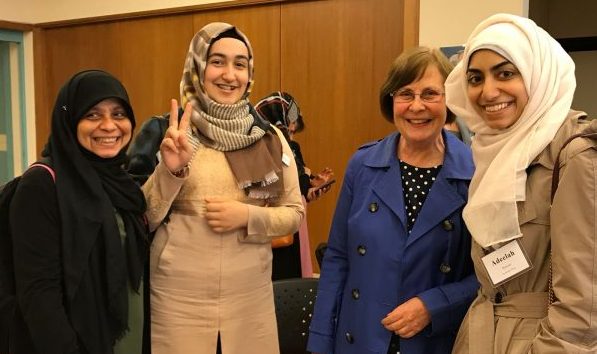
Apr 24, 2018 | Non categorizzato
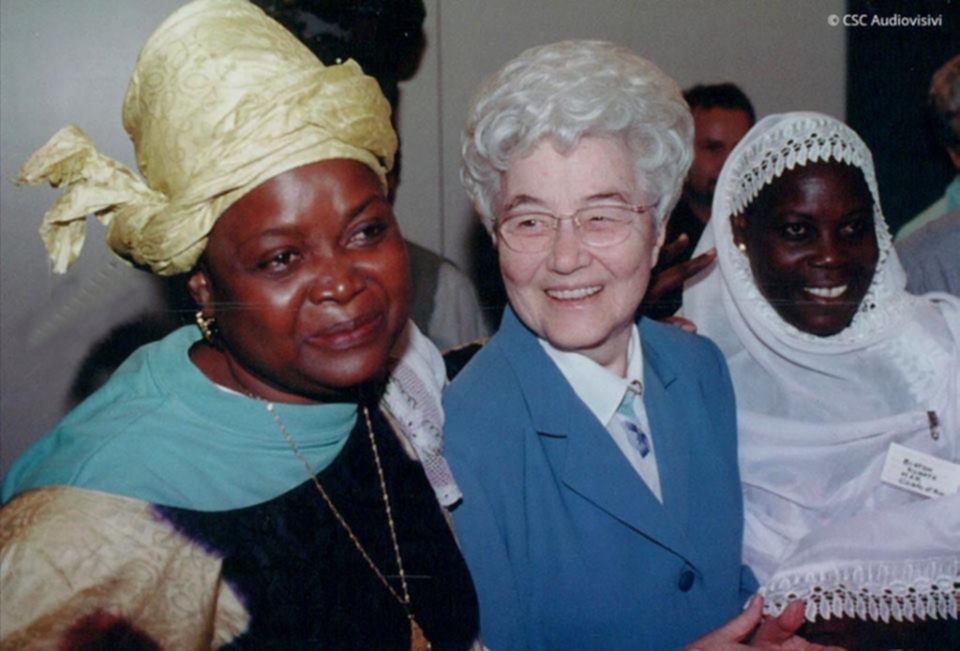
Photo: © CSC Audiovisivi
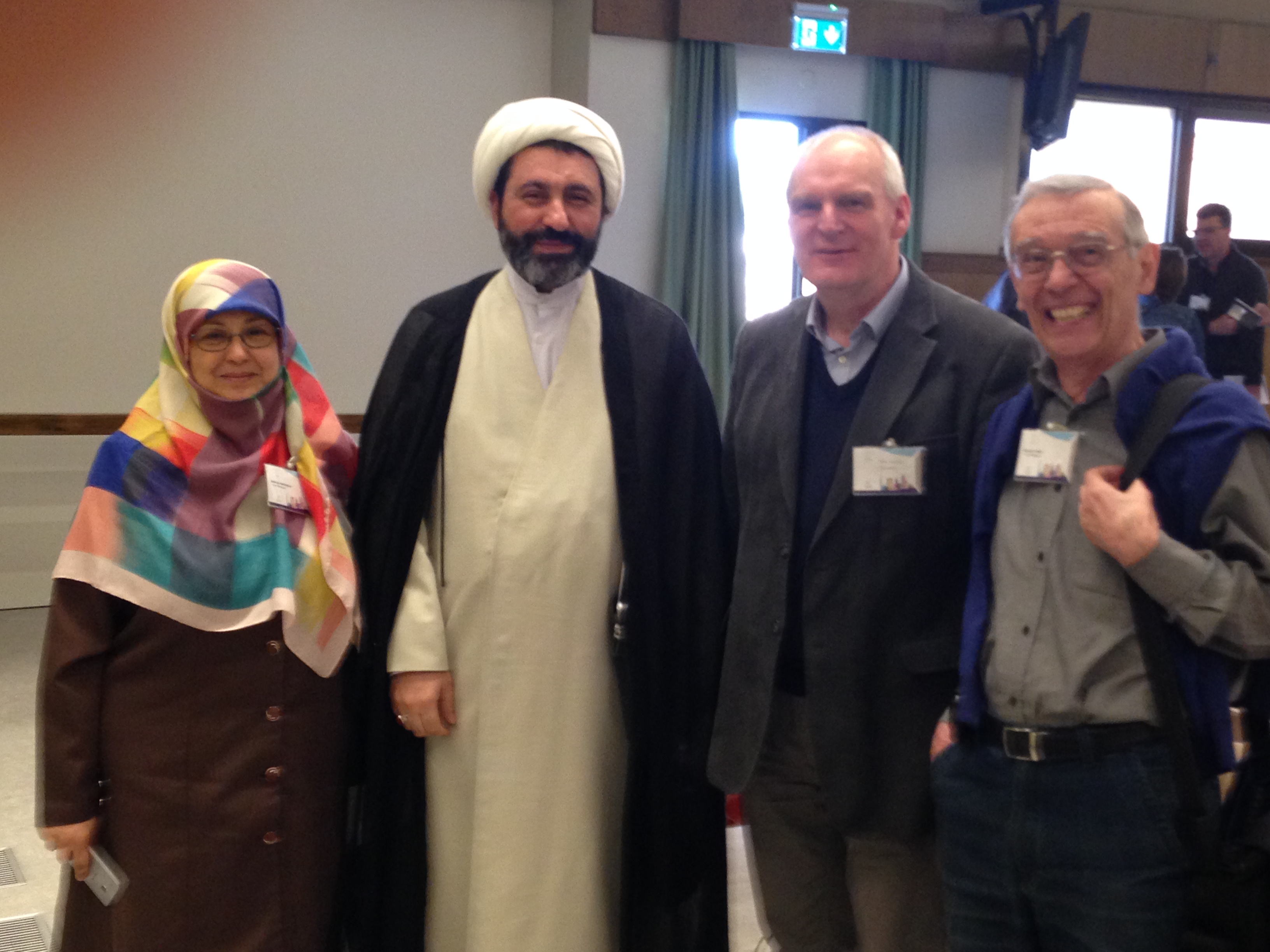 The Imam of Florence, Elizir Izzeddin, President of the Union of Islamic Communities in Italy, with whose members the Focolare Movement has shared a long, deep and fruitful collaboration, also spoke. “We’re all brothers and sisters. It’s not our goal to start a single religion, but to build bridges. With our dialogue we can encounter that hope that goes beyond the fears that have been generated by international terrorism. We work together to move beyond our fears.” Among the testimonies given, was that of the Austrian Focolare community with Syrian refugees. Hedy Lipburger recounted: “Hundreds of refugees arrived in Lower Austria in 2015. They couldn’t be ignored, so we went to help them.” Syrian refugee, Mohammad Kamel Alshhada, went on to say: “I had to leave my country, there was no other choice because, otherwise, I would have had to follow ISIS in teaching their ideas, because I’m a teacher. During the first three months in Austrian refugee camps I was depressed and without hope, we couldn’t talk with local people. Then, for the first time, several people from the Focolare spoke to us and took an interest in us. We felt accepted and appreciated, as if someone had taken our hand and helped us, step after step, to begin a new life.”
The Imam of Florence, Elizir Izzeddin, President of the Union of Islamic Communities in Italy, with whose members the Focolare Movement has shared a long, deep and fruitful collaboration, also spoke. “We’re all brothers and sisters. It’s not our goal to start a single religion, but to build bridges. With our dialogue we can encounter that hope that goes beyond the fears that have been generated by international terrorism. We work together to move beyond our fears.” Among the testimonies given, was that of the Austrian Focolare community with Syrian refugees. Hedy Lipburger recounted: “Hundreds of refugees arrived in Lower Austria in 2015. They couldn’t be ignored, so we went to help them.” Syrian refugee, Mohammad Kamel Alshhada, went on to say: “I had to leave my country, there was no other choice because, otherwise, I would have had to follow ISIS in teaching their ideas, because I’m a teacher. During the first three months in Austrian refugee camps I was depressed and without hope, we couldn’t talk with local people. Then, for the first time, several people from the Focolare spoke to us and took an interest in us. We felt accepted and appreciated, as if someone had taken our hand and helped us, step after step, to begin a new life.”  In the end came the testimony of strong unity between Mohammad Shomali, Director of the Islamic Centre of England, and Piero Coda, president of University Institute Sophia of Loppiano, who began “Wings of Unity”, a series of seminars for young Christians an Muslims that delve into the two faiths and into processes of dialogue and peace. Shomali affirmed: “if we sincerely ask God to guide us so that we can understand one another better, God will guide us. We have to ask God to talk to us together. In 2016, Piero Coda embraced this idea of mine at Loppiano and said we should come up with a name for this project which was clearly from God. Thus the name “Wings of Unity” popped up. Piero Coda continued: “I sensed that that God had a clear project in this. So I proposed a pact to Shomali: “Do we want to ask God to take our heart in his own hands, our mind? He welcomed the idea with joy.”
In the end came the testimony of strong unity between Mohammad Shomali, Director of the Islamic Centre of England, and Piero Coda, president of University Institute Sophia of Loppiano, who began “Wings of Unity”, a series of seminars for young Christians an Muslims that delve into the two faiths and into processes of dialogue and peace. Shomali affirmed: “if we sincerely ask God to guide us so that we can understand one another better, God will guide us. We have to ask God to talk to us together. In 2016, Piero Coda embraced this idea of mine at Loppiano and said we should come up with a name for this project which was clearly from God. Thus the name “Wings of Unity” popped up. Piero Coda continued: “I sensed that that God had a clear project in this. So I proposed a pact to Shomali: “Do we want to ask God to take our heart in his own hands, our mind? He welcomed the idea with joy.”
Apr 24, 2018 | Focolare Worldwide
103 years ago, this huge tragedy was the first on the deplorable list of disasters that occurred in the 20th century: the Armenian genocide. Recalling it, in 2016, Pope Francis made an appeal: “Having seen the pernicious effects to which hatred, prejudice and desire for dominion led in the last century, I express my lively hope that humanity will learn from those tragic experiences the need to act with responsibility and wisdom to avoid the danger of a return to such horrors. May all join in striving to ensure that whenever conflicts emerge between nations, dialogue, the enduring and authentic quest of peace, cooperation between states and the constant commitment of international organizations will always prevail, with the aim of creating a climate of trust favourable for the achievement of lasting agreements that look to the future”.
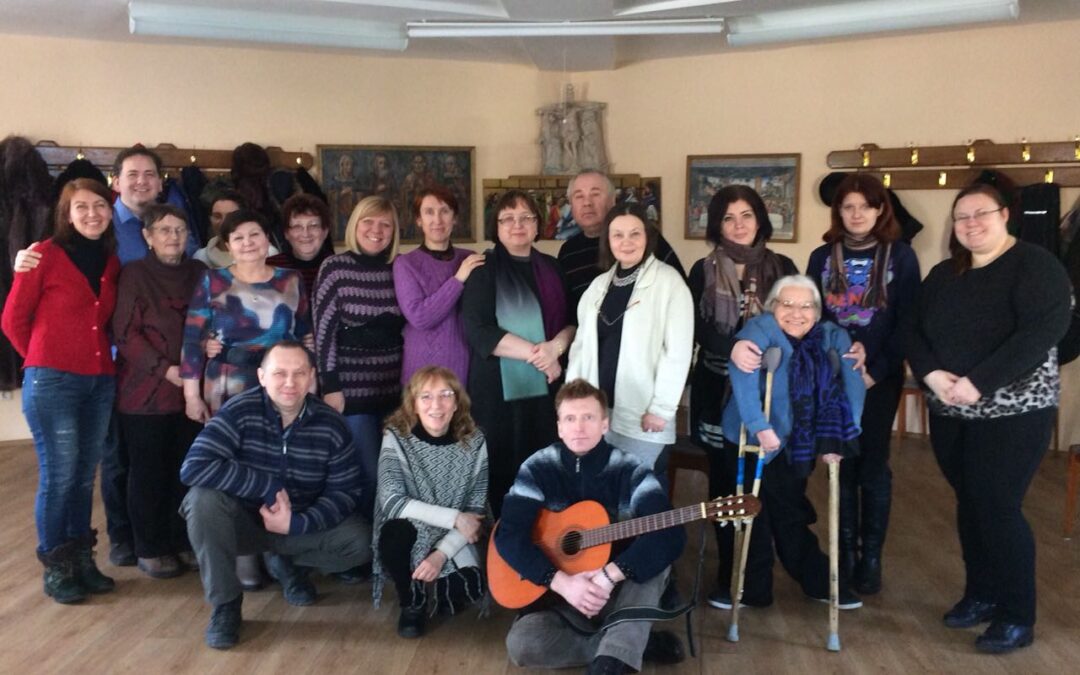
Apr 23, 2018 | Non categorizzato
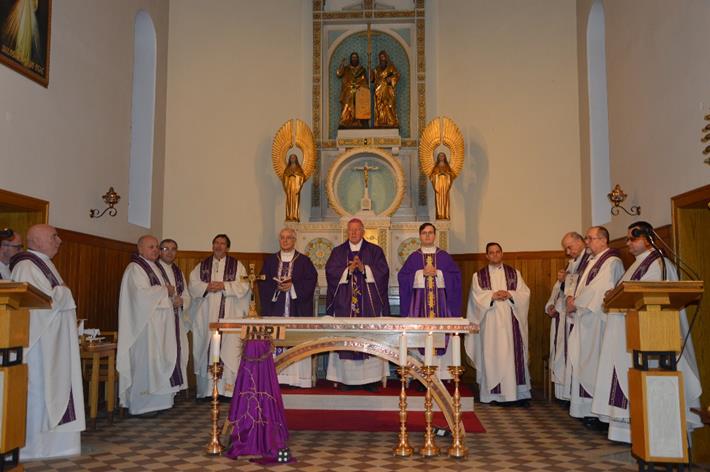 “Ten years after her death, we’re here to remember a great woman», announced the Archbishop of Belgrade, Serbia, Most Rev Stanislav Hočevar while celebrating an anniversary Mass on 14th March. He continued, “At a time when darkness overshadowed the world, a new Light illuminated Chiara’s heart. Even as sin, hatred and evil were creating divisions, Love came close, connecting and unifying, to restore and rebuild. Today, as in those times, surrounded as we are by the chaos of social, cultural and historic conflicts, we too are called to enkindle a new light of understanding, unity and cooperation.” Connecting, coming close, uniting, rebuilding’: these words convey something of the global celebration which began in March and is still ongoing; each event an occasion to recall and relaunch the spiritual legacy of the Focolare founder, Chiara Lubich. «If I was to leave this earth today and you were to ask for my last words, the last word on our Ideal, I would say, sure that you would understand exactly what I mean: Be a family.” Chiara said this back in December 1973, but her words, her legacy, touch hearts today as powerfully as ever, as seen in the news arriving from all over the world of encounters and actions inspired by this anniversary.
“Ten years after her death, we’re here to remember a great woman», announced the Archbishop of Belgrade, Serbia, Most Rev Stanislav Hočevar while celebrating an anniversary Mass on 14th March. He continued, “At a time when darkness overshadowed the world, a new Light illuminated Chiara’s heart. Even as sin, hatred and evil were creating divisions, Love came close, connecting and unifying, to restore and rebuild. Today, as in those times, surrounded as we are by the chaos of social, cultural and historic conflicts, we too are called to enkindle a new light of understanding, unity and cooperation.” Connecting, coming close, uniting, rebuilding’: these words convey something of the global celebration which began in March and is still ongoing; each event an occasion to recall and relaunch the spiritual legacy of the Focolare founder, Chiara Lubich. «If I was to leave this earth today and you were to ask for my last words, the last word on our Ideal, I would say, sure that you would understand exactly what I mean: Be a family.” Chiara said this back in December 1973, but her words, her legacy, touch hearts today as powerfully as ever, as seen in the news arriving from all over the world of encounters and actions inspired by this anniversary. 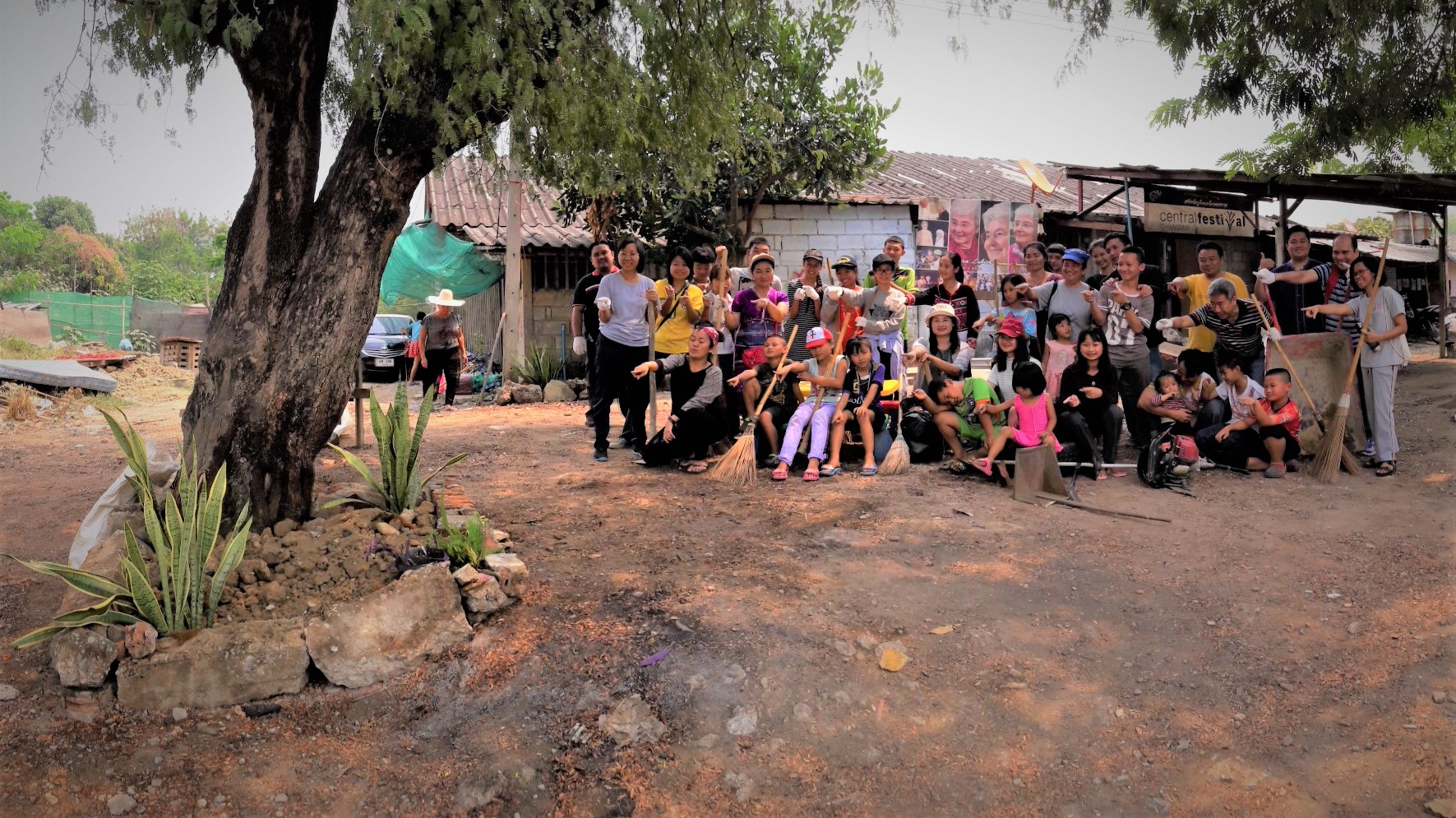 First to the mountainous region of Northern Thailand with its hundreds of elaborately-decorated Buddhist temples, to the city of Chiang Mai. Sixty members of the Focolare community, from five different ethnic groups (Thai, Karen, Akha, Lahu, Kachin), together with others from the Philippines, gathered together to mark the anniversary by offering practical assistance to a rural community in need, the Kachin tribe. As the Focolare members explained, “After celebrating Mass, we set off from the city, adults and children alike, on the 7km journey to a rural village where our friends of the Kachin tribe live in very simple and at times difficult conditions. At their request, we cleared a patch of land and prepared it as a playground for the children. When we had finished transforming that space, we realised that the biggest transformation had actually happened within our hearts and in the relationship among us, as we worked together under the burning sun. In that small place, we experienced the presence of God. We saw how we can work with Him to change the world, one village at a time.”
First to the mountainous region of Northern Thailand with its hundreds of elaborately-decorated Buddhist temples, to the city of Chiang Mai. Sixty members of the Focolare community, from five different ethnic groups (Thai, Karen, Akha, Lahu, Kachin), together with others from the Philippines, gathered together to mark the anniversary by offering practical assistance to a rural community in need, the Kachin tribe. As the Focolare members explained, “After celebrating Mass, we set off from the city, adults and children alike, on the 7km journey to a rural village where our friends of the Kachin tribe live in very simple and at times difficult conditions. At their request, we cleared a patch of land and prepared it as a playground for the children. When we had finished transforming that space, we realised that the biggest transformation had actually happened within our hearts and in the relationship among us, as we worked together under the burning sun. In that small place, we experienced the presence of God. We saw how we can work with Him to change the world, one village at a time.” 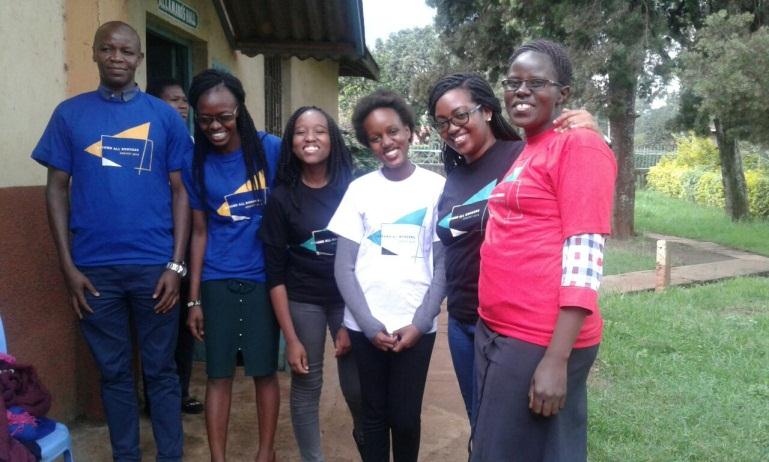 In six regions of Kenya, each in their own way subject to socio-political tensions and at times openly violent conflicts, the local Focolare communities held a series of day meetings proposing a message of unity, more needed than ever to tackle the challenges and difficulties of this multi-ethnic multi-faith nation. Venues included Garissa, eastern Kenya, where tension remains high between Christians and Muslims, Amukura and Seme in the west, Mombassa on the coast, as well as Karatina in the central region and Meru in the North East. “Chiara continues to guide us to this very day,” was the general reaction.
In six regions of Kenya, each in their own way subject to socio-political tensions and at times openly violent conflicts, the local Focolare communities held a series of day meetings proposing a message of unity, more needed than ever to tackle the challenges and difficulties of this multi-ethnic multi-faith nation. Venues included Garissa, eastern Kenya, where tension remains high between Christians and Muslims, Amukura and Seme in the west, Mombassa on the coast, as well as Karatina in the central region and Meru in the North East. “Chiara continues to guide us to this very day,” was the general reaction. 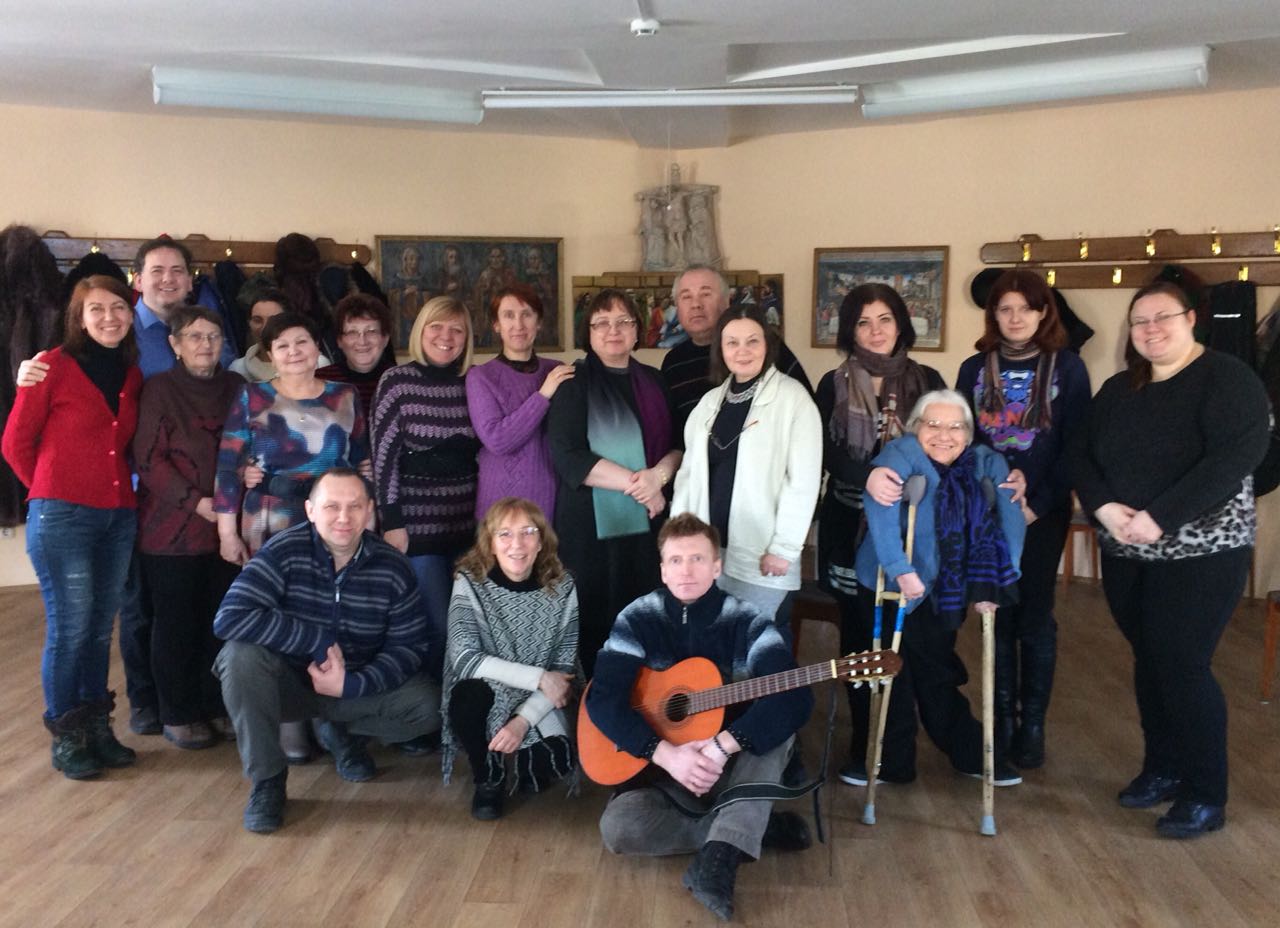 The presence and participation of religious leaders and Church representatives in numerous events was appreciated around the world. In Warsaw, Poland, the head of the Methodist Church sent a warmly-received message, and the Papal Nuncio conveyed greetings from Pope Francis. In Russia, a gathering in Moscow recalled with renewed joy the pioneering era of the 1970s when the first Focolarini arrived in the then Soviet Union. Nearly 2,000km away on the eastern slopes of the Ural Mountains, a Focolare community met in Chelyabinsk. While 4,000km from Moscow, in Central Siberia, a 3-day “Mariapolis” at Krasnojarsk also reflected Chiara’s call to be “a family”. Chiara Lubich’s “legacy” rang out loud and clear in Dublin, Ireland, the city preparing to host the forthcoming World Meeting of Families in August. Particularly moving were testimonies of care and support between the generations inspired by Chiara’s life and words. In Stockholm, Sweden, a group of young people prepared an abundant supper for the whole Focolare community. Over the meal, the conversation revealed the lasting effects of the spirituality of unity in each person’s life. Yet another characteristically “family” celebration. Chiara Favotti
The presence and participation of religious leaders and Church representatives in numerous events was appreciated around the world. In Warsaw, Poland, the head of the Methodist Church sent a warmly-received message, and the Papal Nuncio conveyed greetings from Pope Francis. In Russia, a gathering in Moscow recalled with renewed joy the pioneering era of the 1970s when the first Focolarini arrived in the then Soviet Union. Nearly 2,000km away on the eastern slopes of the Ural Mountains, a Focolare community met in Chelyabinsk. While 4,000km from Moscow, in Central Siberia, a 3-day “Mariapolis” at Krasnojarsk also reflected Chiara’s call to be “a family”. Chiara Lubich’s “legacy” rang out loud and clear in Dublin, Ireland, the city preparing to host the forthcoming World Meeting of Families in August. Particularly moving were testimonies of care and support between the generations inspired by Chiara’s life and words. In Stockholm, Sweden, a group of young people prepared an abundant supper for the whole Focolare community. Over the meal, the conversation revealed the lasting effects of the spirituality of unity in each person’s life. Yet another characteristically “family” celebration. Chiara Favotti
![Nomadelfia and the law of fraternity]()
Apr 23, 2018 | Focolare Worldwide
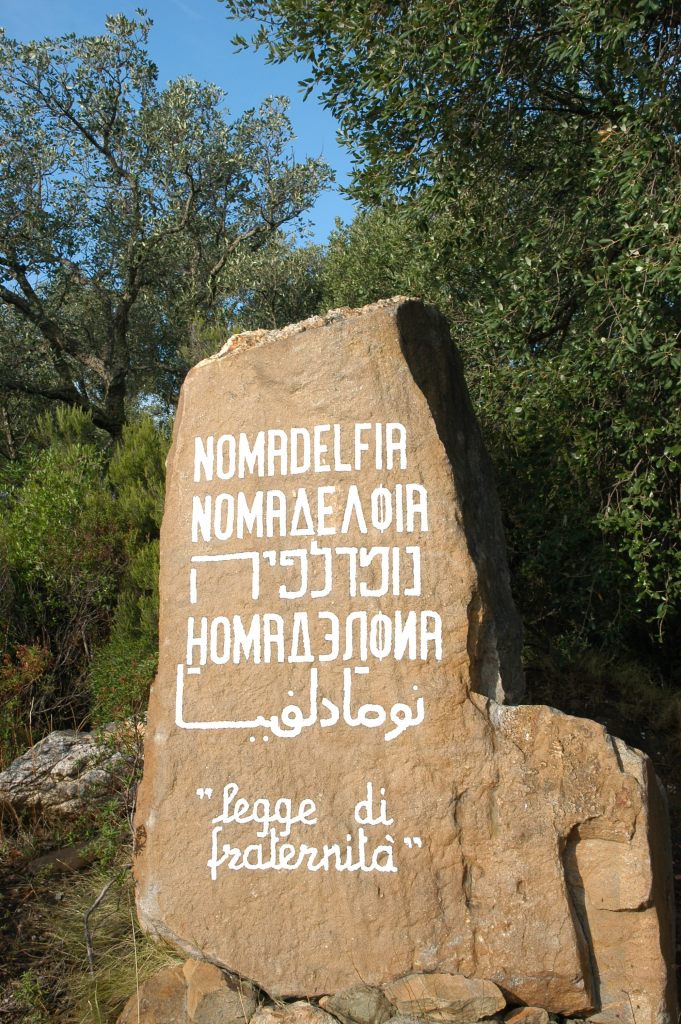
Copyright © 2018 Nomadelfia
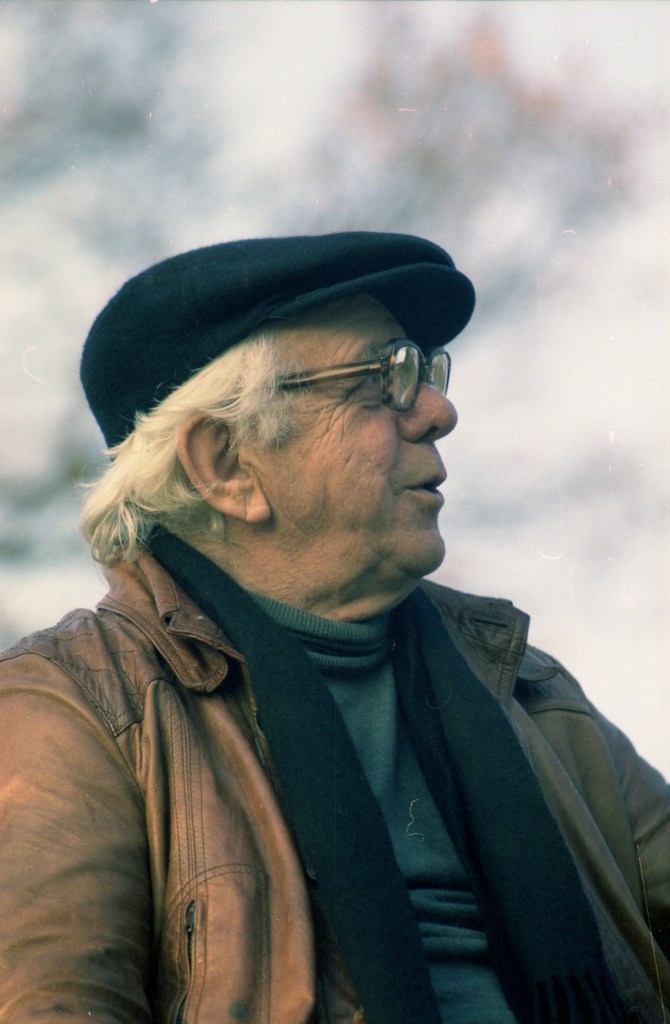
Fr. Zeno Saltini. Foto © 2018 Nomadelfia

22 April 2018: Official visit to the international centre of the Focolare Movement in Rocca di Papa (Rome). ©CSC Audiovisivi

 Zooming in on the young. Once again this year United World Week will be launched from the Focolare’s little town of Loppiano, Italy. Events will include a global network of projects marked by the spirit of brotherhood among peoples from a variety of cultures. This event has been held for over twenty years by the young members of the Focolare Movement who wish to bear witness not only to their peers, but also to public institutions that the dream of a united world has not been crushed by war or underneath the weight of social injustice – especially if the new generations who have been formed in a culture of peace are the ones taking the reins of society in their own hands. On May 1st, the Italian Focolare town will host one of the many “national” events in advance of the Genfest that will be held this year in Manila, Philippines (“Beyond all Borders, July 2018), and assemble 3 thousand young people from all over the world. It will be a festival to talk about the most difficult border to overcome when reaching out to others: oneself. “Beyond Me” will tell the stories of people who have wanted to bring about a change, beginning with themselves, stepping out of their comfort zones, to open themselves to such values as solidarity and to the needs of the people around them. For many of the young people, this experience of openness deepens its roots into a personal encounter with God, which has transformed their lives and allowed them to overcome their fears. For others, it has been overcoming an illness or disability or taking notice of someone else’s need. In name of a great friendship with the community of Nomadelfia and in view of the Pope’s visit to the two towns on May 10th, there will also be a large group of young people from Nomadelfia.
Zooming in on the young. Once again this year United World Week will be launched from the Focolare’s little town of Loppiano, Italy. Events will include a global network of projects marked by the spirit of brotherhood among peoples from a variety of cultures. This event has been held for over twenty years by the young members of the Focolare Movement who wish to bear witness not only to their peers, but also to public institutions that the dream of a united world has not been crushed by war or underneath the weight of social injustice – especially if the new generations who have been formed in a culture of peace are the ones taking the reins of society in their own hands. On May 1st, the Italian Focolare town will host one of the many “national” events in advance of the Genfest that will be held this year in Manila, Philippines (“Beyond all Borders, July 2018), and assemble 3 thousand young people from all over the world. It will be a festival to talk about the most difficult border to overcome when reaching out to others: oneself. “Beyond Me” will tell the stories of people who have wanted to bring about a change, beginning with themselves, stepping out of their comfort zones, to open themselves to such values as solidarity and to the needs of the people around them. For many of the young people, this experience of openness deepens its roots into a personal encounter with God, which has transformed their lives and allowed them to overcome their fears. For others, it has been overcoming an illness or disability or taking notice of someone else’s need. In name of a great friendship with the community of Nomadelfia and in view of the Pope’s visit to the two towns on May 10th, there will also be a large group of young people from Nomadelfia.  United World Week, which will begin right after, will be a single event located in different places around the world. It is an international expo that is an integral part of the United World Project, which for more than twenty years – the first edition in 1995 – returns every year at this time to promote peaceful relations and exchange among peoples and cultures, especially among the poor, marginalized and lonely, but not with out the help of famous people from the worlds of culture, sport, civil society and religion. Over time, United World Week gained ground on the local, national and supranational levels of public opinion through the social and mass media, and its projects in favor of brotherhood. The 2018 edition will focus on the topic “Generation Zero Hunger” one of 17 sustainable development objectives contained in the Agenda approved by the member States of the United Nations, to be reached by 2030. The teenagers and young people of the Focolare Movement have long been engaged in offering an important contribution to the project being brought forward by the Food and Agriculture Organization of the United Nations (FAO), with regard to things such as malnutrition, wasting food, respect for Nature and personal and collective projects geared towards the responsible use of the earth and its resources. Hence, the Week will be an opportunity to show the results of this collaboration and to engage other teenagers, citizens and institutions in reaching the goal. At the conclusion, on May 6th, the Run for Unity relay race will be held with hundred and thousands of teenagers of all nationalities, religions, cultures and ethnic groups. It will cover the earth, offering a testimony of “fraternity” from East to West. At every stop along the run – on foot or on bike – the most counter-current relay that exists will be enriched with sporting events, games, acts of solidarity and whatever else can help to bear witness that the dream of a united world lives on, in spite of the tensions or signs to the contrary. Perhaps these kids will be among the main actors. Chiara Favotti
United World Week, which will begin right after, will be a single event located in different places around the world. It is an international expo that is an integral part of the United World Project, which for more than twenty years – the first edition in 1995 – returns every year at this time to promote peaceful relations and exchange among peoples and cultures, especially among the poor, marginalized and lonely, but not with out the help of famous people from the worlds of culture, sport, civil society and religion. Over time, United World Week gained ground on the local, national and supranational levels of public opinion through the social and mass media, and its projects in favor of brotherhood. The 2018 edition will focus on the topic “Generation Zero Hunger” one of 17 sustainable development objectives contained in the Agenda approved by the member States of the United Nations, to be reached by 2030. The teenagers and young people of the Focolare Movement have long been engaged in offering an important contribution to the project being brought forward by the Food and Agriculture Organization of the United Nations (FAO), with regard to things such as malnutrition, wasting food, respect for Nature and personal and collective projects geared towards the responsible use of the earth and its resources. Hence, the Week will be an opportunity to show the results of this collaboration and to engage other teenagers, citizens and institutions in reaching the goal. At the conclusion, on May 6th, the Run for Unity relay race will be held with hundred and thousands of teenagers of all nationalities, religions, cultures and ethnic groups. It will cover the earth, offering a testimony of “fraternity” from East to West. At every stop along the run – on foot or on bike – the most counter-current relay that exists will be enriched with sporting events, games, acts of solidarity and whatever else can help to bear witness that the dream of a united world lives on, in spite of the tensions or signs to the contrary. Perhaps these kids will be among the main actors. Chiara Favotti





 Deepening the theme of Dialogue in the pedagogical field. With operators, teachers, schools, pedagogical approaches and different educational experiences, young people, undergraduates, PhD students who will present their research work. Info:
Deepening the theme of Dialogue in the pedagogical field. With operators, teachers, schools, pedagogical approaches and different educational experiences, young people, undergraduates, PhD students who will present their research work. Info: 




 “Ten years after her death, we’re here to remember a great woman», announced the Archbishop of Belgrade, Serbia, Most Rev Stanislav Hočevar while celebrating an anniversary Mass on 14th March. He continued, “At a time when darkness overshadowed the world, a new Light illuminated Chiara’s heart. Even as sin, hatred and evil were creating divisions, Love came close, connecting and unifying, to restore and rebuild. Today, as in those times, surrounded as we are by the chaos of social, cultural and historic conflicts, we too are called to enkindle a new light of understanding, unity and cooperation.” Connecting, coming close, uniting, rebuilding’: these words convey something of the global celebration which began in March and is still ongoing; each event an occasion to recall and relaunch the spiritual legacy of the Focolare founder, Chiara Lubich. «If I was to leave this earth today and you were to ask for my last words, the last word on our Ideal, I would say, sure that you would understand exactly what I mean: Be a family.” Chiara said this back in December 1973, but her words, her legacy, touch hearts today as powerfully as ever, as seen in the news arriving from all over the world of encounters and actions inspired by this anniversary.
“Ten years after her death, we’re here to remember a great woman», announced the Archbishop of Belgrade, Serbia, Most Rev Stanislav Hočevar while celebrating an anniversary Mass on 14th March. He continued, “At a time when darkness overshadowed the world, a new Light illuminated Chiara’s heart. Even as sin, hatred and evil were creating divisions, Love came close, connecting and unifying, to restore and rebuild. Today, as in those times, surrounded as we are by the chaos of social, cultural and historic conflicts, we too are called to enkindle a new light of understanding, unity and cooperation.” Connecting, coming close, uniting, rebuilding’: these words convey something of the global celebration which began in March and is still ongoing; each event an occasion to recall and relaunch the spiritual legacy of the Focolare founder, Chiara Lubich. «If I was to leave this earth today and you were to ask for my last words, the last word on our Ideal, I would say, sure that you would understand exactly what I mean: Be a family.” Chiara said this back in December 1973, but her words, her legacy, touch hearts today as powerfully as ever, as seen in the news arriving from all over the world of encounters and actions inspired by this anniversary. 
 In six regions of Kenya, each in their own way subject to socio-political tensions and at times openly violent conflicts, the local Focolare communities held a series of day meetings proposing a message of unity, more needed than ever to tackle the challenges and difficulties of this multi-ethnic multi-faith nation. Venues included Garissa, eastern Kenya, where tension remains high between Christians and Muslims, Amukura and Seme in the west, Mombassa on the coast, as well as Karatina in the central region and Meru in the North East. “Chiara continues to guide us to this very day,” was the general reaction.
In six regions of Kenya, each in their own way subject to socio-political tensions and at times openly violent conflicts, the local Focolare communities held a series of day meetings proposing a message of unity, more needed than ever to tackle the challenges and difficulties of this multi-ethnic multi-faith nation. Venues included Garissa, eastern Kenya, where tension remains high between Christians and Muslims, Amukura and Seme in the west, Mombassa on the coast, as well as Karatina in the central region and Meru in the North East. “Chiara continues to guide us to this very day,” was the general reaction.  The presence and participation of religious leaders and Church representatives in numerous events was appreciated around the world. In Warsaw, Poland, the head of the Methodist Church sent a warmly-received message, and the Papal Nuncio conveyed greetings from Pope Francis. In Russia, a gathering in Moscow recalled with renewed joy the pioneering era of the 1970s when the first Focolarini arrived in the then Soviet Union. Nearly 2,000km away on the eastern slopes of the Ural Mountains, a Focolare community met in Chelyabinsk. While 4,000km from Moscow, in Central Siberia, a 3-day “Mariapolis” at Krasnojarsk also reflected Chiara’s call to be “a family”. Chiara Lubich’s “legacy” rang out loud and clear in Dublin, Ireland, the city preparing to host the forthcoming World Meeting of Families in August. Particularly moving were testimonies of care and support between the generations inspired by Chiara’s life and words. In Stockholm, Sweden, a group of young people prepared an abundant supper for the whole Focolare community. Over the meal, the conversation revealed the lasting effects of the spirituality of unity in each person’s life. Yet another characteristically “family” celebration. Chiara Favotti
The presence and participation of religious leaders and Church representatives in numerous events was appreciated around the world. In Warsaw, Poland, the head of the Methodist Church sent a warmly-received message, and the Papal Nuncio conveyed greetings from Pope Francis. In Russia, a gathering in Moscow recalled with renewed joy the pioneering era of the 1970s when the first Focolarini arrived in the then Soviet Union. Nearly 2,000km away on the eastern slopes of the Ural Mountains, a Focolare community met in Chelyabinsk. While 4,000km from Moscow, in Central Siberia, a 3-day “Mariapolis” at Krasnojarsk also reflected Chiara’s call to be “a family”. Chiara Lubich’s “legacy” rang out loud and clear in Dublin, Ireland, the city preparing to host the forthcoming World Meeting of Families in August. Particularly moving were testimonies of care and support between the generations inspired by Chiara’s life and words. In Stockholm, Sweden, a group of young people prepared an abundant supper for the whole Focolare community. Over the meal, the conversation revealed the lasting effects of the spirituality of unity in each person’s life. Yet another characteristically “family” celebration. Chiara Favotti

